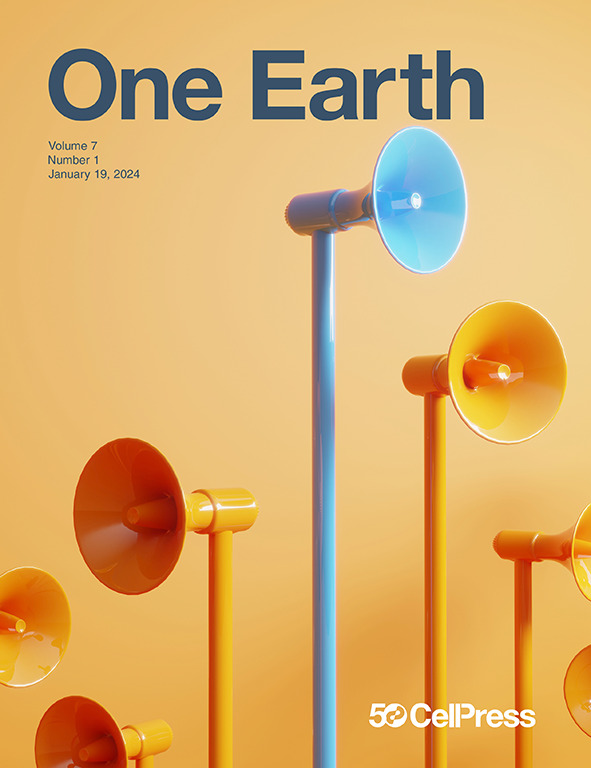理解极端事件的经历:个人反思。
IF 15.1
1区 环境科学与生态学
Q1 ENVIRONMENTAL SCIENCES
引用次数: 0
摘要
心智模式,包括我们对世界如何运作的假设,影响着我们如何经历极端事件,比如澳大利亚的森林大火。反过来,这些经历也会改变他们。了解我们心智模式的变化可以帮助社区为极端事件制定计划并从中恢复过来。本文章由计算机程序翻译,如有差异,请以英文原文为准。
Understanding the Experience of an Extreme Event: A Personal Reflection.
Mental models, which include our assumptions about how the world works, influence how we experience extreme events, such as the Australian bushfires. In turn, they can be altered by those experiences. Understanding (changes to) our mental models can help communities plan for, and recover from, extreme events.
求助全文
通过发布文献求助,成功后即可免费获取论文全文。
去求助
来源期刊

One Earth
Environmental Science-Environmental Science (all)
CiteScore
18.90
自引率
1.90%
发文量
159
期刊介绍:
One Earth, Cell Press' flagship sustainability journal, serves as a platform for high-quality research and perspectives that contribute to a deeper understanding and resolution of contemporary sustainability challenges. With monthly thematic issues, the journal aims to bridge gaps between natural, social, and applied sciences, along with the humanities. One Earth fosters the cross-pollination of ideas, inspiring transformative research to address the complexities of sustainability.
 求助内容:
求助内容: 应助结果提醒方式:
应助结果提醒方式:


